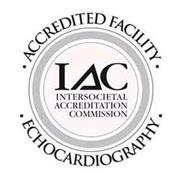Early Intervention Is Key
One of the best ways to reduce the chance of heart damage is to discover the problem early. Today's advanced diagnostic capabilities allow cardiologists to use noninvasive diagnostic tests including:
- Electrocardiograms (ECGs) trace your heart rhythm and can diagnose an acute heart attack as it is happening.
- Color doppler echocardiography and transesophageal echocardiography uses sound waves to track blood flow through the heart. Physicians can gain accurate information about cardiac abnormalities from these color images.
- Holter monitoring takes the ECG a step further. By recording your heart's activity 24 hours a day, it lets your cardiologist detect irregularities.
- Treadmill stress testing measures and records the heart's electrical activity while you exercise, which allows your cardiologist to evaluate cardiovascular functions under stress.
- The Nuclear Medicine Department uses radioisotopes to help diagnose many cardiac diseases and disorders.
- Cardiac catheterization is a more invasive but relatively comfortable test that can identify the source of a heart problem. Performed in the catheterization lab at the Heart Center, the procedure involves placing a small, flexible catheter into a patient's artery. Surgeons carefully thread the catheter through the body and into the heart where they release dye. The dye produces detailed images of the heart that we can capture on videotape. This allows cardiologists to visually assess blocked, narrow arteries.
- Intravascular ultrasound, a three-dimensional sound wave device, reveals the exact size of the
Accredited by the Intersocietal Accreditation Commission (IAC) in Echocardiography (2023)
Commission (IAC) in Echocardiography (2023)
This accreditation is indicative of compliance with national standards and a commitment to providing quality testing and patient care.
Learn more about this accreditation →
As medical technology continues to advance, the scope of heart treatment options broadens. Treatment selection depends on many factors, including the time that has lapsed since symptoms began and a patient's history of heart disease. Some treatments involve specialized medications, others may require surgery, and some may include preventive education programs that challenge patients and their families to take on new, rewarding lifestyles. Because every patient is different, cardiologists can design an individualized path of treatment that works for you.
Find a Cardiologist
If you need a referral to a physician at Lakewood Ranch Medical Center, call our free physician referral service at 800-454-8215 or search for a doctor online.
